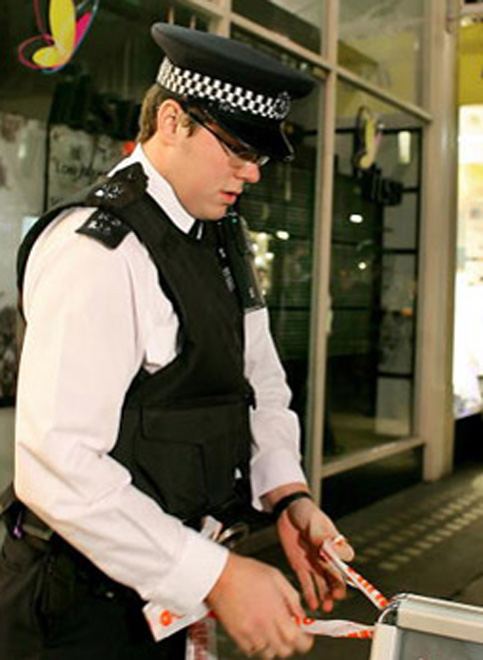British new coalition government announced radical plans on Monday to shake up policing in England and Wales, Xinhua reported.
Home Secretary Theresa May told the House of Commons that the Home Office consultation paper "Policing in the 21st century -- Reconnecting Police and the People" was the "most radical reform of policing in 50 years."
She added "Policing is a priority for this government. For too long the police have become disconnected from the communities they serve. They have been bogged down by bureaucracy and answered to distant politicians instead of to the people.
"Crime remains too high, too many families suffer from anti- social behavior, and barely half the public are confident important local issues are being dealt with.
"Terrorism, the growth in organized crime and cyber-crime were new challenges," said May.
She said she would connect the police with the local community by introducing elected police commissioners by 2012 with power to set budgets, set priorities and hire and fire chief constables, who remain in charge of local police forces.
Local police statistics would be published and local police would hold meetings where their performance could be discussed.
She also said police should do less bureaucracy, and removed some current form-filling requirements.
May announced the setting up of a National Crime Agency (NCA) to tackle organized crime and to protect national borders.
The National Policing Improvement Agency, a watchdog body, would be abolished, along with the Serious Organized Crime Agency, whose role would fall under the NCA umbrella.
Volunteers and non-professional help would be encouraged, with the establishment of a reservist scheme and allowing community crime fighters to go with police on patrol.
Prime minister David Cameron praised the changes. "By replacing invisible police authorities with directly elected police and crime commissioners, we can forge a direct link between the police and the public, ensuring that the public have a voice in setting police priorities and have the power to hold the police to account for keeping our streets safe and secure."
Shadow Home Secretary Alan Johnson criticized the plans in the Commons. "We've yet to hear a word from this government about how they plan to cut crime. All we've heard is how they'll cut officer numbers, prison places and police powers."
Derek Barnett, president of the Police Superintendents' Association, told the BBC the reforms were "radical and far- reaching" and welcomed the creation of national structures.
However, he added that it was "important to maintain the independence of the 43 regional constabularies," and expressed worries of political interference by the new police commissioners. "How can an individual represent a geographic area or diverse communities?" queried Barnett. Policing in England and Wales, which is administered separately to Northern Ireland and to Scotland, is on a local, geographical basis, with forces usually following county boundaries, some of which go back hundreds of years. Forces can overlap in what they do, and part of the reforms will be aimed at saving money from getting forces to cooperate more fully.
There is currently no national police force, and although the reforms do not propose one the NCA marks a major change, as it will perform roles similar to the FBI in the United States.
Policing is also currently at a distance from politics, but elected police commissioners will bring direct political control with them.






